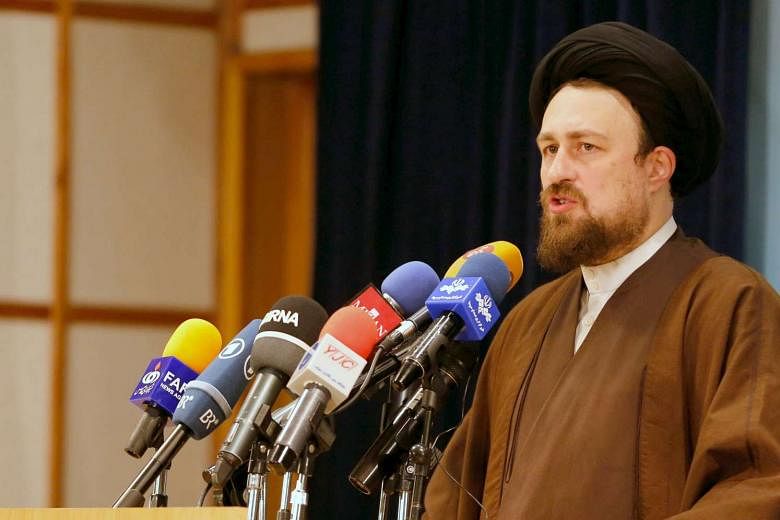DUBAI (REUTERS, AFP) - The grandson of the Islamic Republic's founder, Ayatollah Ruhollah Khomeini, will not be allowed to stand in this month's election in Iran after losing his appeal against a ban, the clerical vetting body said on Wednesday.
Hassan Khomeini, 43, was the first member of the Khomeini family to register for an election, making him a highly symbolic ally of the moderate President Hassan Rouhani.
A power struggle between Iranian conservatives on one side and reformists and moderates on the other has intensified since the removal last month of international economic sanctions against Teheran following its nuclear agreement with the West.
"Based on news we have received, Sayyad Hassan Khomeini's qualification for candidacy for the Assembly of Experts has once again not been approved by the Guardian Council," Hassan Khomeini wrote on instant messaging service Telegram.
The Guardian Council, a conservative-dominated committee that decides who can run for public office, has barred hundreds of candidates from standing for the assembly on Feb 26, the same day as parliamentary polls.
The Assembly of Experts monitors the work of Iran's supreme leader, Ayatollah Ali Khamenei, and its 88 members may also be responsible for picking the 76-year-old's eventual successor.
Following Iran's recent nuclear deal with world powers led by the United States, both elections are seen as crucial to shaping the country's future direction.
Khomeini, a cleric who has ties to reformist politicians, said last month he would appeal a Guardian Council decision to ban him from running.
"It's a surprise to me and to many others that some of the honourable gentlemen in the Guardian Council couldn't establish I am qualified," Khomeini had said.
The grandson of Ayatollah Ruhollah Khomeini, who led the 1979 Islamic revolution that ended the reign of US-backed Shah Mohammad Reza Pahlavi, holds no official political position.
A government official said this week that prominent reformists were among more than 1,400 initially rejected candidates now eligible to contest parliamentary elections later this month.
The individuals were not named but a final candidate list is expected on Feb 16.
The number of people allowed to contest the parliamentary election now stands at 6,185 - 51 per cent of original applicants - including 586 women.

